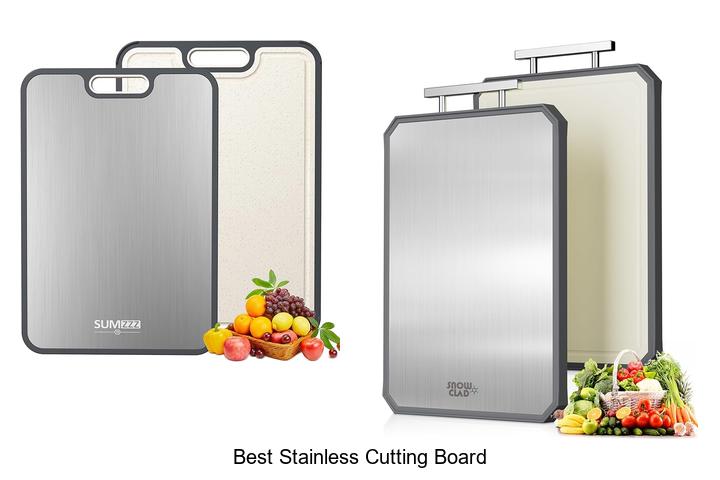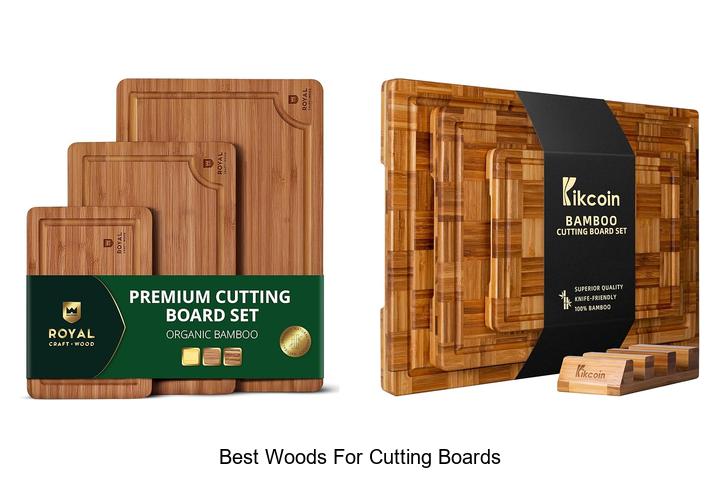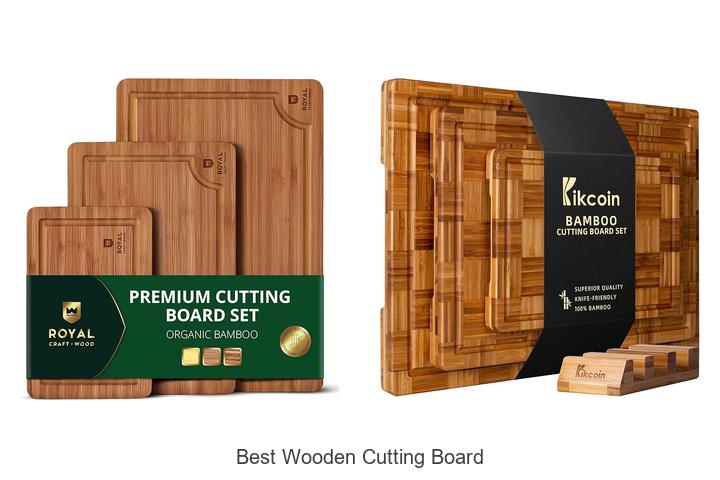Are Epicurean Cutting Boards Safe? A Complete Safety Review
When it comes to choosing the right cutting board for your kitchen, safety and durability are top priorities. Epicurean cutting boards have become popular for their eco-friendly materials and sleek design, but you might wonder if they’re truly safe for daily use. Understanding what makes a cutting board safe can help you make the best choice for your health and cooking needs.
You’ll want to know if Epicurean boards resist bacteria, withstand knife marks, and hold up under regular cleaning. Knowing these details will give you confidence in your kitchen tools and ensure your food preparation stays hygienic and hassle-free. Let’s dive into what makes Epicurean cutting boards stand out and whether they’re the right fit for your home.
Understanding Epicurean Cutting Boards
Epicurean cutting boards combine innovative materials and thoughtful design to meet your kitchen needs. Knowing what they’re made of and their distinctive features helps you decide if they fit your cooking style.
What Are Epicurean Cutting Boards Made Of?
Epicurean boards consist of a wood fiber composite called Richlite, which blends sustainable wood fibers with resin. This material offers a sturdy, nonporous surface that resists moisture and bacteria better than traditional wood. Richlite is also FDA-approved for food contact, ensuring it’s safe for everyday kitchen use. The boards contain no harmful chemicals like BPA or formaldehyde.
Features That Set Them Apart
Epicurean cutting boards resist knife marks, maintaining a smooth surface that reduces bacterial buildup in grooves. They are heat-resistant up to 350°F, so you can place hot pots on them without damage. The boards also feature dishwasher-safe durability, saving time on cleaning while keeping sanitation high. Their lightweight, thin profiles make handling and storage convenient compared to bulkier wooden options. These features combine to offer a hygienic, durable, and eco-friendly cutting surface.
Safety Considerations of Epicurean Cutting Boards
Understanding the safety features of Epicurean cutting boards helps you make a confident choice for your kitchen. These boards combine material innovation and practical durability to ensure food preparation remains safe and hygienic.
Materials and Food Safety Standards
Epicurean cutting boards use Richlite, a composite of sustainable wood fibers and resin, approved by the FDA for direct food contact. This material contains no BPA, formaldehyde, or other harmful chemicals, maintaining your food’s purity. You get a cutting surface free from toxins, meeting strict food safety regulations.
Resistance to Bacteria and Mold
The nonporous surface of Epicurean boards resists bacteria and mold growth. Moisture and food particles don’t penetrate the surface, reducing the risk of contamination. You can clean these boards thoroughly without fearing hidden bacteria or mold buildup, supporting safer food prep.
Heat and Knife Damage Tolerance
Epicurean boards withstand heat up to 350°F, meaning you can place hot pots directly on them without damage. Their dense surface resists deep knife cuts while maintaining smoothness, which prevents bacteria from settling in grooves. You get a durable board that stays safe and functional through heavy use.
Pros and Cons of Using Epicurean Cutting Boards
Understanding the advantages and limitations of Epicurean cutting boards helps you decide if they fit your kitchen needs.
Benefits for Health and Durability
Epicurean cutting boards feature a nonporous surface made from Richlite, which resists moisture and bacteria growth, ensuring hygienic food preparation. Their FDA approval guarantees safety for food contact without harmful chemicals like BPA or formaldehyde. These boards resist knife marks and maintain a smooth surface that reduces bacteria harboring spots, enhancing durability over time. Their heat resistance up to 350°F allows safe placement of hot pots, while dishwasher-safe properties simplify thorough cleaning and sanitation. Lightweight and thin design improves handling and storage compared to traditional wooden boards, making them practical for frequent use.
Potential Drawbacks and Concerns
Epicurean cutting boards can show some visible knife marks after extended heavy use, which might affect aesthetics but not safety. Because Richlite is a composite, deep cuts or gouges may be harder to repair compared to wooden boards. High heat exposure beyond 350°F can cause damage, limiting use near direct flames or oven racks. While dishwasher safe, repeated cycles over time could potentially degrade board surface texture. Some users may find the boards less forgiving on knife edges compared to softer wood, potentially requiring more frequent blade maintenance.
Comparing Epicurean Cutting Boards to Other Types
Understanding how Epicurean cutting boards compare to wood, plastic, and other composite boards helps you make an informed choice for your kitchen.
Wood, Plastic, and Composite Comparisons
Wood cutting boards, such as maple and walnut, offer natural antibacterial properties and self-healing surfaces that minimize deep knife marks. However, they require regular oiling and hand washing to prevent warping and bacterial buildup. Epicurean boards, made from Richlite, provide a nonporous, water-resistant surface that resists bacteria without the need for extensive maintenance. Unlike wood, they tolerate dishwasher cleaning but lack the self-healing capacity wood offers.
Plastic boards, commonly made from polyethylene, are lightweight, affordable, and dishwasher-safe, enabling easy sanitation. Yet, plastic tends to retain knife scars that can harbor bacteria and degrade over time. Epicurean boards match plastic in dishwasher safety but exceed them in heat resistance up to 350°F, allowing hot pots on the surface without damage. The denser Richlite surface also better resists deep cuts compared to typical plastic options.
Other composite boards vary in materials, with some using bamboo fibers or resin mixes. These may be less durable or less heat-resistant than Epicurean boards. Epicurean’s Richlite composite stands out for combining eco-friendly wood fibers with durable resin, creating a board that balances hardness and hygiene. This creates a cutting surface more resistant to moisture and bacteria than many other composites while maintaining safe use under heat and regular cleaning conditions.
Tips for Proper Care and Maintenance
Proper care keeps your Epicurean cutting board safe and durable over time. Follow cleaning and maintenance steps to preserve its performance and appearance.
Cleaning and Sanitizing Best Practices
Start cleaning your board immediately after use to prevent residue buildup. Rinse with warm water and mild dish soap, scrubbing gently with a soft sponge. Avoid abrasive cleaners or steel wool, which can damage the surface. Epicurean boards are dishwasher-safe, allowing thorough sanitation without risk. However, limit dishwasher cycles to avoid gradual surface wear. After washing, dry the board completely with a clean towel to prevent moisture buildup.
Sanitize occasionally by wiping the surface with a mixture of one tablespoon of white vinegar per cup of water. This natural sanitizer reduces bacteria without chemical residues. Avoid bleach or harsh chemical disinfectants that can degrade the resin surface.
Extending the Lifespan of Your Cutting Board
Use separate boards for raw meat and produce to minimize cross-contamination and reduce deep knife marks on one surface. Rotate your board regularly to even out wear and avoid warping. Store your cutting board flat or upright in a dry area away from direct sunlight and extreme heat sources exceeding 350°F. Keep knives sharp to reduce heavy scraping that can tear the surface.
If minor knife marks appear, sand the area lightly with fine-grit sandpaper and clean the surface afterward. Avoid exposing the board to prolonged soaking or extreme temperature changes, which could compromise its structure. Following these guidelines preserves the board’s hygienic, sturdy qualities for everyday kitchen use.
Conclusion
Choosing a cutting board that balances safety, durability, and ease of use is key for your kitchen. Epicurean cutting boards offer a reliable option with their nonporous, eco-friendly Richlite material that stands up well to daily wear and cleaning. Their resistance to bacteria and heat makes them a practical choice for maintaining a hygienic food prep space.
While no cutting board is perfect, with proper care you can extend the life and performance of an Epicurean board. If you want a stylish, sustainable, and safe surface for your kitchen tasks, these boards deserve serious consideration. Your investment in quality now can lead to a cleaner and more efficient cooking experience every day.


